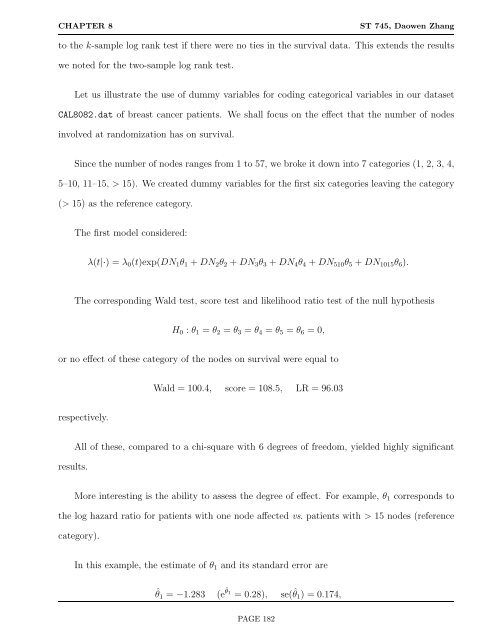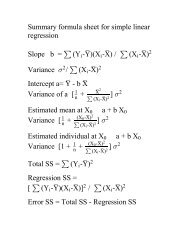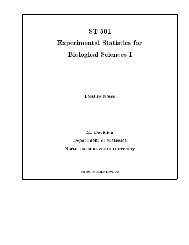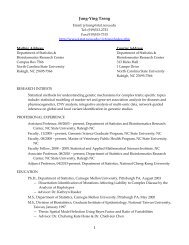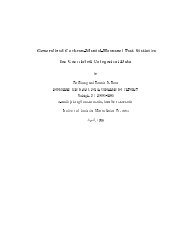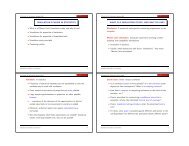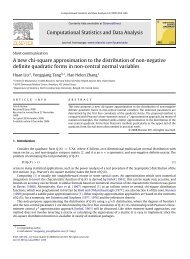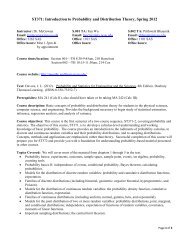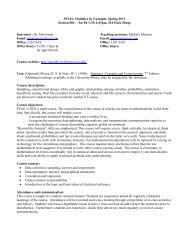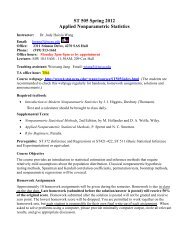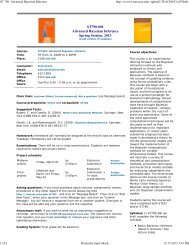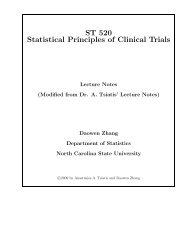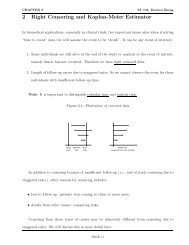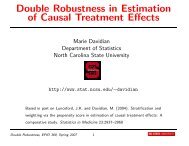8 Modeling Survival Data with Categorical ... - NCSU Statistics
8 Modeling Survival Data with Categorical ... - NCSU Statistics
8 Modeling Survival Data with Categorical ... - NCSU Statistics
Create successful ePaper yourself
Turn your PDF publications into a flip-book with our unique Google optimized e-Paper software.
CHAPTER 8 ST 745, Daowen Zhang<br />
to the k-sample log rank test if there were no ties in the survival data. This extends the results<br />
we noted for the two-sample log rank test.<br />
Let us illustrate the use of dummy variables for coding categorical variables in our dataset<br />
CAL8082.dat of breast cancer patients. We shall focus on the effect that the number of nodes<br />
involved at randomization has on survival.<br />
Since the number of nodes ranges from 1 to 57, we broke it down into 7 categories (1, 2, 3, 4,<br />
5–10, 11–15, > 15). We created dummy variables for the first six categories leaving the category<br />
(> 15) as the reference category.<br />
The first model considered:<br />
λ(t|·) =λ0(t)exp(DN1θ1 + DN2θ2 + DN3θ3 + DN4θ4 + DN510θ5 + DN1015θ6).<br />
The corresponding Wald test, score test and likelihood ratio test of the null hypothesis<br />
H0 : θ1 = θ2 = θ3 = θ4 = θ5 = θ6 =0,<br />
or no effect of these category of the nodes on survival were equal to<br />
respectively.<br />
results.<br />
Wald = 100.4, score = 108.5, LR = 96.03<br />
All of these, compared to a chi-square <strong>with</strong> 6 degrees of freedom, yielded highly significant<br />
More interesting is the ability to assess the degree of effect. For example, θ1 corresponds to<br />
the log hazard ratio for patients <strong>with</strong> one node affected vs. patients <strong>with</strong> > 15 nodes (reference<br />
category).<br />
In this example, the estimate of θ1 and its standard error are<br />
ˆθ1 = −1.283 (e ˆ θ1 =0.28), se( ˆ θ1) =0.174,<br />
PAGE 182


